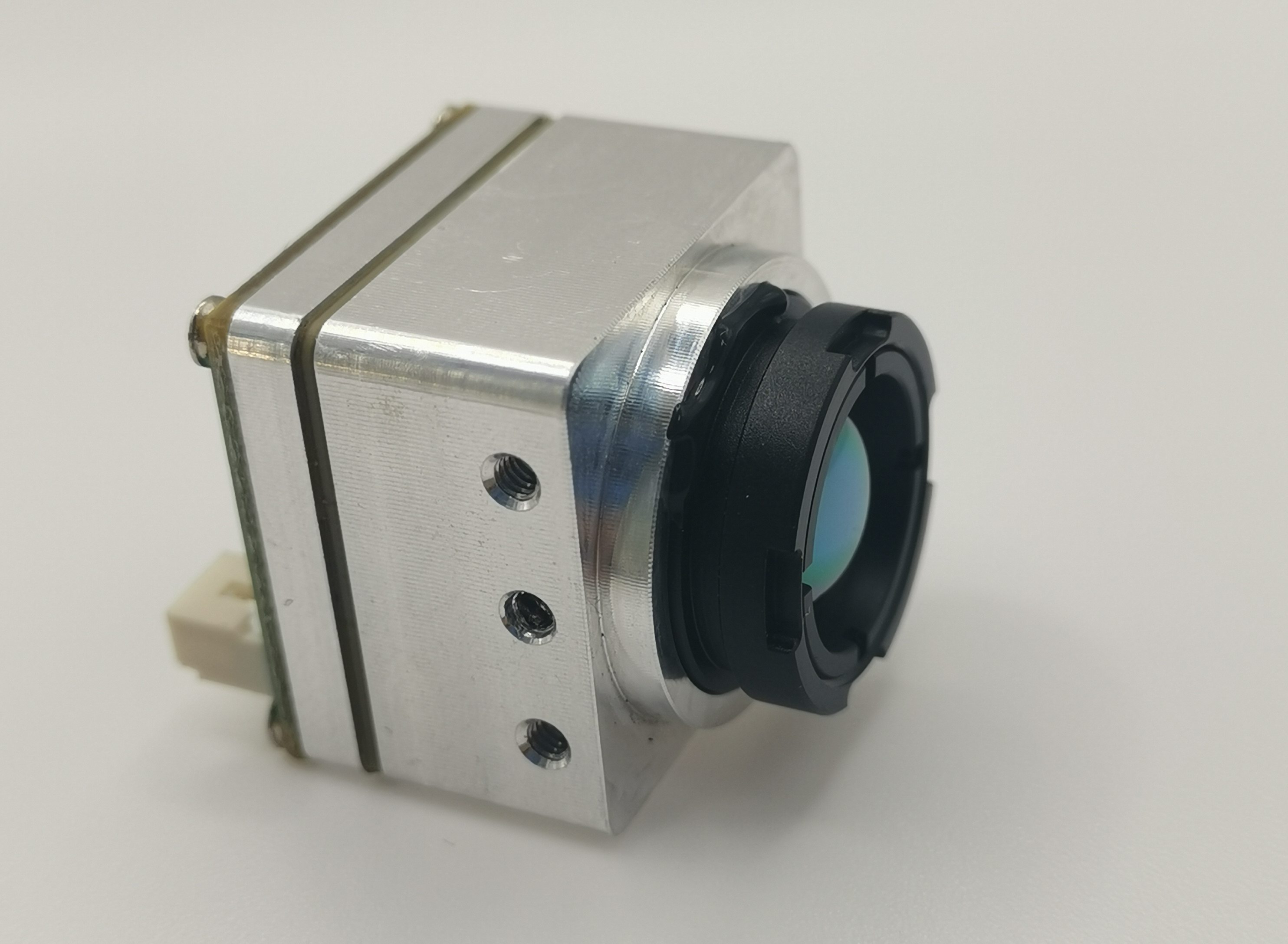How to Choose the Best Analog FPV Thermal Camera for Your DJI Drone

Introduction to Thermal Imaging on DJI Drones
Thermal imaging technology has revolutionized the capabilities of DJI drones, offering a multitude of advantages that cater to diverse needs. Let's delve into the benefits of thermal imaging and why opting for an analog FPV thermal camera is a strategic choice.
The Advantages of Thermal Imaging
Enhancing Visibility and Safety
Thermal imaging empowers drone operators with enhanced visibility in challenging environments, such as low light conditions or dense foliage. This heightened visibility contributes to improved safety measures during search and rescue missions, surveillance operations, and infrastructure inspections.
Applications in Various Fields
The applications of thermal imaging extend across a wide array of fields including agriculture, wildlife conservation, firefighting, and law enforcement. By capturing heat signatures invisible to the naked eye, thermal cameras facilitate efficient monitoring and analysis in these critical sectors.
Why Choose an Analog FPV Thermal Camera?
The Unique Benefits
Analog FPV thermal cameras offer distinct advantages such as real-time video transmission and seamless integration with FPV systems. These features make them ideal for live streaming applications and immediate decision-making processes during critical operations.
Compatibility Considerations
When selecting a thermal camera for your DJI drone, compatibility is paramount. Ensure that the chosen camera aligns with the specifications of your drone model to guarantee seamless integration and optimal performance.
In the subsequent sections, we will explore the key features of analog FPV thermal cameras and provide insights into choosing the right DJI drone for your thermal imaging needs.
Understanding Analog FPV Thermal Cameras
When considering analog FPV thermal cameras for your DJI drone, it's crucial to understand the key features that differentiate them and how they compare to digital thermal cameras.
Key Features of Analog FPV Thermal Cameras
Resolution and Sensitivity
Analog FPV thermal cameras are renowned for their high resolution and sensitivity, allowing for the detection of even subtle temperature variations. This capability is essential for applications such as wildlife monitoring, where precise temperature variations can indicate animal presence or health.
Field of View and Range
The field of view and range of an analog FPV thermal camera play a significant role in its effectiveness. A wider field of view enables comprehensive area coverage, while an extended range ensures the detection of distant heat signatures. These features are particularly valuable in search and rescue missions and perimeter surveillance.
Comparing Analog and Digital Thermal Cameras
Pros and Cons
Analog FPV thermal cameras offer real-time video transmission, making them suitable for live streaming applications without latency issues. On the other hand, digital thermal cameras often provide higher image clarity and advanced image processing capabilities. Understanding these pros and cons is essential in making an informed decision based on your specific operational requirements.
Situational Best Fits
Analog FPV thermal cameras are well-suited for scenarios that demand immediate decision-making based on live video feed, such as emergency response operations or dynamic surveillance tasks. Conversely, digital thermal cameras excel in applications requiring detailed post-analysis and advanced image manipulation.
Choosing the Right DJI Drone for Your Thermal Camera
When it comes to integrating a thermal camera with your DJI drone, selecting the right drone model is crucial to ensure seamless compatibility and optimal performance.
DJI Drones with Thermal Camera Compatibility
Popular Models and Their Features
DJI offers a range of drones equipped with thermal camera compatibility, catering to diverse user requirements. The Mavic 2 Enterprise Dual stands out as a versatile option, featuring a compact design and advanced thermal imaging capabilities. Another popular choice is the Matrice 300 RTK, renowned for its robust build quality and enhanced payload capacity, making it suitable for professional-grade thermal imaging applications.
Assessing Your Needs and Budget
Before investing in a DJI drone with thermal camera compatibility, it's essential to assess your specific operational needs and budget constraints. Consider the intended use cases for thermal imaging, such as search and rescue missions, infrastructure inspections, or agricultural monitoring. Additionally, evaluate the budget allocation for both the drone and compatible thermal camera to ensure a well-rounded investment that aligns with your requirements.
Installation and Integration Tips
Mounting and Calibration
Once you've selected the appropriate DJI drone and compatible thermal camera, proper mounting and calibration are imperative for seamless integration. Follow the manufacturer's guidelines for securely mounting the thermal camera onto the drone while ensuring optimal balance and stability. Additionally, calibration procedures should be meticulously followed to guarantee accurate temperature readings during operations.
Software and Firmware Updates
Regular software and firmware updates are vital to maintain the functionality of both the DJI drone and the integrated thermal camera. Stay informed about firmware releases from DJI that may include optimizations for thermal imaging performance. Similarly, ensure that any accompanying software or mobile applications for controlling the thermal camera are kept up to date to leverage the latest features and enhancements.
Making Your Final Selection
Reviewing Your Checklist
As you approach the final stages of selecting the best analog FPV thermal camera for your DJI drone, it's crucial to review your checklist of considerations. Recapitulate the key factors that align with your operational requirements and objectives. Evaluate aspects such as compatibility with your drone model, real-time video transmission capabilities, and the specific applications where thermal imaging will be utilized. By revisiting your checklist, you can ensure that your decision is well-informed and tailored to meet your unique needs.
Recap of Key Considerations
Compatibility with DJI Drone Model
Real-Time Video Transmission Capabilities
Intended Applications for Thermal Imaging
Finalizing Your Decision
After thorough consideration of the essential factors, finalize your decision by selecting the analog FPV thermal camera that best aligns with your checklist. Ensure that the chosen camera not only meets technical specifications but also complements your operational workflows and objectives effectively.
Where to Purchase and What to Expect
Once you've made your final selection, it's essential to identify trusted retailers and online platforms for procuring the analog FPV thermal camera. Look for authorized DJI dealers or reputable online stores known for their reliability and customer service standards.
Trusted Retailers and Online Platforms
Authorized DJI Dealers
Established Online Platforms with Positive Customer Feedback
Warranty and Support Services
When purchasing an analog FPV thermal camera, inquire about the available warranty coverage and after-sales support services. A comprehensive warranty ensures protection against potential defects or malfunctions, while reliable support services provide assistance in troubleshooting and optimizing the camera's performance.
By considering these aspects when making your final selection, you can confidently proceed with acquiring an analog FPV thermal camera that meets both your technical requirements and customer service expectations.
See Also
Revolutionizing Drone Tech and Surveillance with Analog FPV Thermal Camera
Contact Us: Ms. Coco Huang
E-mail: sales@iasun.cn
WhatsApp/Wechat: +86 13510421923

